Search Results
Showing results 1 to 12 of 12
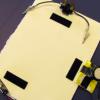
Building a Basic Series Circuit
Source Institutions
This activity was designed for blind learners, but all types of learners can use it to build and examine a basic electrical circuit.

Build an Electromagnet
Source Institutions
In this activity, learners will build a simple electromagnet. They will test variables that would make the electromagnet stronger.
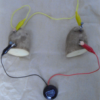
Making a Battery from a Potato
Source Institutions
In this electrochemistry activity, young learners and adult helpers create a battery from a potato to run a clock.
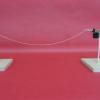
Trip Wire
Source Institutions
In this activity, learners build simple alarms that they can attach to anything, such as a drawer or doorway. This activity introduces learners to electricity, circuits, and currents.
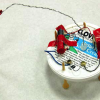
Scribbling Machines
Source Institutions
In this activity, learners explore electronics and motion by making a Scribbling Machine, a motorized contraption that moves in unusual ways and leaves a mark to trace its path.
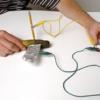
Kosher Dill Current: Make Your Own Battery!
Source Institutions
This is an activity that demonstrates how batteries work using simple household materials. Learners use a pickle, aluminum foil and a pencil to create an electrical circuit that powers a buzzer.
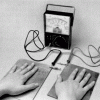
Hand Battery
Source Institutions
In this activity about chemistry and electricity, learners form a battery by placing their hands onto plates of different metals.
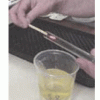
Having a Gas with Water
Source Institutions
In this activity, learners construct a simple electrolysis device. With this device, learners can decompose water into its elemental components: hydrogen and oxygen gas.
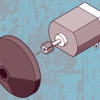
Motorized Car
Source Institutions
In this design challenge activity, learners build a car that uses a battery-operated motor to "drive" at least ten feet.
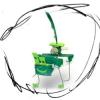
Jitterbugs
Source Institutions
In this activity, learners construct bug models that "jitter" all over the table with just a battery, motor, and counterweight.
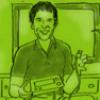
Electric Highway
Source Institutions
In this design challenge activity, learners design and build a circuit: an "electric highway" that connects a battery and buzzer at least three feet apart using four types of materials.
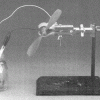
Power To Go
Source Institutions
Learners observe an electrochemical cell constructed from a small jar containing zinc and copper strips immersed in separate solutions. The strips are connected to a motor that turns a small fan.
